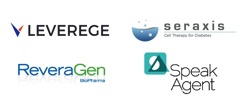
Awards Recognize Achievements by Current Clients and Graduates of Maryland Incubators
Twenty-one of the State’s leading incubator companies have been selected as finalists for the 2017 Maryland Incubator Company of the Year Awards. The team from BioHealth Innovation, Inc. (BHI) is proud to recognize that four of these companies are currenting operating out of either the BHI managed Rockville Innovation Center or the Germantown Innovation Center. Leverege, LLC., and Seraxis, Inc. are located at the Germantown Innovation Center. ReveraGen BioPharma, Inc., and Speak Agent, Inc. reside at the Rockville Innovation Center.
“These four companies are a strong representation of the cross-section of growing technology enterprises in Montgomery County from Biotechnology to IoT and EdTech.” said Ethan Byler, BHI Managing Director. Congratulations to all the finalists from both the Germantown Innovation Center and the Rockville Innovation Center. The recognition is a testament of their success.”
- Leverege, LLC. is a systems integrator and end-to-end solutions provider that offers a simulation-centric IoT platform that reduces time to market, lowers costs, and results in better IoT services for customers.
- ReveraGen BioPharma, Inc. is a privately held, clinical-stage pharmaceutical company developing therapeutics for Duchenne Muscular Dystrophy.
- Seraxis Inc. is a privately-owned Biotechnology company working to provide a cure for the devastating disease of diabetes.
- Speak Agent, Inc. is an education company delivering game-based learning resources that can be customized to fit the exact academic vocabulary needs of learners.

QIAGEN N.V. (NASDAQ: QGEN; Frankfurt Prime Standard: QIA) today announced the formation of a joint venture with Maccura Biotechnology Co., Ltd., a leading in vitro diagnostics (IVD) company in China. The joint venture, named MAQGEN plans to accelerate local adaptations, development and commercialization of the GeneReader NGS System in the rapidly growing clinical and clinical research markets in China. QIAGEN's GeneReader NGS System is the world's first complete Sample to Insight solution and makes the benefits of next-generation sequencing (NGS) accessible to any laboratory.
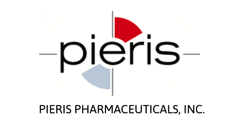
Pieris today announced a strategic collaboration in respiratory diseases with AstraZeneca to develop novel inhaled drugs that leverage Pieris' Anticalin® platform, including its lead preclinical drug candidate, PRS-060.
Anticalin molecules are engineered proteins which can mimic antibodies by binding to sites either on other proteins or on small molecules. They are smaller than monoclonal antibodies, offering the potential of direct delivery to the lung.

AstraZeneca (LSE: AZN) and its global biologics research and development arm, MedImmune, today announced that the US Food and Drug Administration (FDA) has granted accelerated approval to Imfinzi (durvalumab). Imfinzi is indicated for the treatment of patients with locally advanced or metastatic urothelial carcinoma (mUC) who have disease progression during or following platinum-containing chemotherapy, or whose disease has progressed within 12 months of receiving platinum-containing chemotherapy before (neoadjuvant) or after (adjuvant) surgery. Imfinzi is approved under the FDA's accelerated approval pathway, based on tumour response rate and durability of response. Continued approval for this indication may be contingent upon verification and description of clinical benefit in confirmatory trials.
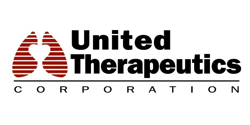
Silver Spring-based United Therapeutics Corp. has been clear about its ambitions to build an unlimited supply of certain transplantable organs.
Now, founder Martine Rothblatt said the company's new multiyear collaboration with a 3-D bioprinting company, announced Wednesday, takes it a big step toward that goal.

Tired of seeing most of the $1 billion-plus it raised for startup funding leave the state, Johns Hopkins University has opened a new state-of-the-art technology incubation hub, part of a $65 million expansion project.

Sisu Global Health got more recognition for its device that recycles blood for use during surgery, winning the First Mile Innovation Challenge.
The competition, which was run by the Consortium of Affordable Medical Technologies (CAMTech), GE Sustainable Healthcare Solutions and MGH Global Health, sought applications from around the world that address health hardships in low and middle income countries. About 80 companies from 16 countries applied, according to an announcement.

Wednesday, May 17, 2017, 01:00pm - 04:00pm
The Department of Homeland Security’s program to fortify the cybersecurity of government networks and systems.
Join the Cybersecurity Association of Maryland, Inc. (CAMI) for the May 17th NCCoE Speaker Series and hear from the Department of Homeland Security's (DHS) Branch Chief at the Cybersecurity Assurance Branch, Mr. Martin Stanley, who will discuss and demonstrate the DHS and NCCoE generic Continuous Diagnostics and Mitigation (CDM) instance. Mr. Stanley will then moderate a panel of government and industry experts to discuss the benefits of how a solution like CDM can benefit any enterprise.
Topic: Continuous Diagnostics & Mitigation
Event Format: Keynote Speaker followed by a panel discussion and concluding with a networking reception.
Note: This program will be offered with the option to attend in-person or to tune in remotely via webinar.
Webcast: registration is required to view the webcast of this event. You will receive a link to the live stream in your order confirmation email from Eventbrite, so please make sure to save this information.
Cost: Free to attend (registration required).

Today, Maryland Governor Larry Hogan signed into law a measure aimed at providing additional support to Maryland small biotechnology companies. Senate Bill 226 sponsored by Senator Roger Manno, and House Bill 373 sponsored by Delegate Darryl Barnes will support Maryland small and innovative biotech companies by amending the Biotechnology Investor Incentive Tax Credit (BIITC) definition of a Qualified Maryland Biotechnology to allow investment in companies that have been in business no longer than 12 years and in active business for up to 15 years if completing the process of regulatory approval. The BIITC Extension has been a legislative priority of BioFactura and the Small Biotechnology Business Coalition, and our Coalition has worked closely with Delegate Barnes and Senator Manno on this legislation.

Maryland Gov. Larry Hogan signed more than 200 bills Thursday afternoon, including one that will present the University of Maryland with $1.5 million a year to establish a new Maryland Energy Innovation Institute on the campus.
The Maryland Clean Energy Center and the University of Maryland Energy Research Center collaborated to work out the details of the initiative, which aims to increase job opportunities and protect the environment by commercializing environmentally-friendly technology statewide, according to Eric Wachsman, director of the Energy Research Center and the Institute.
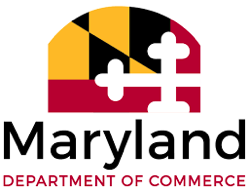
MSBDFA promotes the viability and expansion of businesses owned by economically and socially disadvantaged entrepreneurs.
MSBDFA uses include working capital, supplies and materials, machinery and equipment acquisition, land acquisition or real estate improvements. Other uses include the purchase of an existing franchise, construction or renovation and franchise fees or obtaining bid, performance and payment bonds for contracts, which receive the majority of their funding from federal, state or local government.

ByteGrid Holdings LLC, which is dedicated to providing the most secure and compliant hosting solutions available, has been awarded “FedRAMP Ready” status by the Federal Risk and Authorization Management Program (FedRAMP).
“We are pleased to announce this achievement as we continue to add to our capability in delivering a highly secure and regulatory compliant set of products and services to our customers. This is just one more example of ByteGrid’s commitment to serving our customers’ requirements and going the extra mile in protecting their systems and data,” said Michael Duckett, Bytegrid CEO.

This isn’t Brian Loew’s first run at Internet success.
During the thick of the dot-com mania 20 years ago, Loew and some friends built an online publishing company called Worldweb.net. It had 150 employees and $15 million in revenue but, like many start-ups from the era, it never posted a profit.
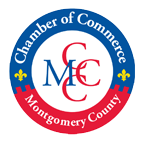
June 13, 2017 - 6:00pm - 9:00pm
Bethesda North Marriott Hotel and County Conference Center 5701 Marinelli Road, North Bethesda, MD 20852
Tuesday, June 13 MCCC 58th Annual Dinner honoring Dr. Martine Rothblatt and United Therapeutics as the Visionary of the Year United Therapeutics Corporation is a bio-tech company focused on the development and commercialization of innovative products to address the unmet medical needs of patients with chronic and life-threatening conditions. They have five approved products on the market today and are in relentless pursuit of “medicines for life”®. Their overarching commitment to environmental sustainability is reflected in their new corporate office facility in Silver Spring. This seven-story, 108,000-sq.-ft., cutting-edge collaborative workspace aims to inspire people think out of today's box and into the realm of tomorrow.
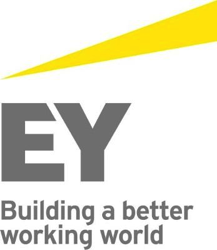
EY today announced the finalists for the Entrepreneur Of The Year 2017 Award in the Maryland Region. The awards program recognizes entrepreneurs who are excelling in areas such as innovation, financial performance and personal commitment to their businesses and communities. These business leaders were selected by a panel of independent judges. Award winners will be announced at a special gala on June 28, 2017 at the Baltimore Marriott Waterfront Hotel.

Sitting around a table before class, Shane Yeager talked about one of his two startups.
“Short Clips is a technology service where brands and agencies can take their media files — videos, audio, photos — put them into our platform, and then within 24 hours, get a professionally cut 15-second to one-minute video,” he said.
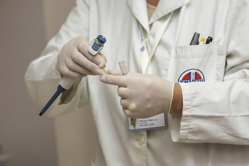
Medicine is a field slow to adopt an innovation; after all, you are dealing with people’s lives and there is a very high bar for discarding old ways. That said, a huge percentage of the medical community will agree that tradition has often hampered the adoption of new technologies that can significantly improve communication, collaboration, and community.

Look out Silicon Valley, there’s a new innovation hotbed in town.
For the second year in a row, Central Texas Angel Network (CTAN) has won the coveted #1 ranking at the Angel Capital Association’s annual ACA Summit in San Francisco.
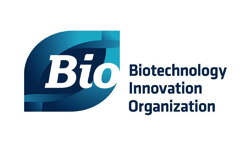
The Biotechnology Innovation Organization (BIO), the National Science Foundation (NSF) and the National Institutes of Health (NIH) today announced an agreement to feature Small Business Innovation Research (SBIR)-funded early-stage biomedical companies in an Innovation Zone at the 2017 BIO International Convention. The Innovation Zone companies, focused on drug discovery, diagnostics and other therapeutic platform technologies, will have dedicated exhibit space and participate in BIO’s One-on-One Partnering™ system. Select companies will make 15-minute company presentations in the BIO Business Forum.

Immigration advocates claim that about half of the most lucrative startups in America were founded by immigrants. But it's complicated for a foreigner to start a company in America — there's no such thing as a startup visa.
That's why some entrepreneurs are "hacking the system" through a workaround that started as an experiment in Massachusetts and has expanded to five other states.

VentureApp, a professional chat platform, today announced VentureMap New York City, an interactive network visualization of the city's tech ecosystem, in partnership with RRE Ventures. The map displays 3,043 investments into tech startups by angel investors, venture capitalists, incubators, accelerators, and more.

Healthcare companies (device manufacturers, payors, and providers, among others) have long relied on technology as a core utility—for tracking R&D efforts and patient information, scheduling payments and services, launching new care options, and generally keeping the lights on.

If there was any doubt that a Republican-led Congress might give a strong boost to federal science spending, the Trump administration probably sealed the deal.
With its call in March for a mammoth $6-billion cut in the annual budget of the National Institutes of Health, the administration appears to have done more than anything else to energize the science community and supportive lawmakers, advocates said.